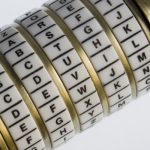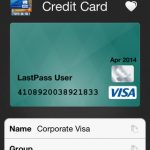The 25 worst pins and passwords

At a time when password breaches like the one at LinkedIn are once more making the news, there's plenty of good advice around about how to select a strong password as opposed to the sort of stereotyped easy-to-remember-but-stupendously-easy-to-guess password that turns up again and again in dumped lists of hacked passwords.
So if your favorite, much-used password (or something very like it) is in the following list, it might be a good idea to stop reading this now, go to the link on how to select a strong password and use it as a basis for changing all your passwords to something safer (then come back and think about the PINs you use). The list is abstracted from one compiled by Mark Burnett, representing the most-used passwords in a data set of around 6 million:
Use a 'code book' to protect (and to recall) your online passwords

With the recent announcements of password breaches at LinkedIn, and warnings from Google about state-sponsored attacks on Gmail accounts, it seems like a good idea now to review some password security basics. Then there is report today that someone hacked presidential candidate Mitt Romney's Dropbox and Hotmail.
In this post, we’re going to take a look at a rather low-tech solution to a decidedly high-tech problem: How to guard against password reset attacks, and where to securely store the answers to your password reset questions.
How will the LinkedIn hack affect you?

This morning when I logged into LinkedIn I was greeted with several front page references to the reported hacking of the site, and instructions for changing my password, which I did immediately. This is a good time to change all of your social media passwords, making sure you create a fresh password that is hard to guess and unique to each site. It is not unusual for malicious parties who grab a bunch of passwords from one site to try those same passwords on other sites.
Over 6.5 million account passwords showed up on a Russian forum in SHA-1 (hashed) format to prove that the hackers had indeed succeeded in penetrating LinkedIn. There is a good chance that if the hacker(s) achieved access to LinkedIn passwords then they also know the corresponding LinkedIn usernames, i.e. the matching email address of the account owner.
Passware Encryption Analyzer hunts down hidden archives

If you manage one or more PCs then you’ll know it can be difficult to make sure they’re all being used as you might like. Should someone want to conceal files from you, say, then if they zip them up and password-protect the archive then there’s very little chance of you ever finding out.
It doesn’t have to be that way, though, not if you install Passware Encryption Analyzer Free, a simple tool that will scan whatever areas of a PC you define and highlight almost any encrypted or password-protected files.
Don't let that software agreement be a devil's deal, try EULAlyzer

You’ve downloaded an interesting new application, and you’re eager to try it out. So it’s hardly a surprise if, when you’re presented with a lengthy and complex licence agreement, you’ll just choose the “Agree” option without even reading it.
Ignoring the EULA does mean you’re missing out on some potentially interesting information, though, as a program’s agreement could reveal how installing it might result in you receiving targeted advertising, spam, or having personal information shared with third parties. Of course you’ll need to pick out these more interesting clauses from the background noise, but if you find that a problem then you can always get a little help from BrightFort’s EULAlyzer.
Microsoft turns on 'Do Not Track' in Internet Explorer 10 by default

In a move that is sure to rankle web advertisers, Microsoft late Thursday disclosed that Internet Explorer will have "Do Not Track" functionality on by default. This will prevent browser data crucial to behavioral and targeted advertising from being sent to third parties and could seriously disrupt the advertising industry in general.
Microsoft is vowing to move ahead despite the complaints of the industry. "While some people will say that this change is too much and others that it is not enough, we think it is progress and that consumers will favor products designed with their privacy in mind over products that are designed primarily to gather their data", IE vice president Dean Hachamovitch says.
Stay anonymous online with SecurityKiss

If you feel you’d like to be a little more anonymous online then installing a free VPN client is generally a good place to start. But there’s a snag: even though the VPN service know you’re concerned about your internet privacy, they’ll often still ask you to create an account, provide your email address and maybe other details, too.
SecurityKISS takes a simpler approach. There’s no “signing up”, no forms to fill in, no personal information required at all: just download and install the OpenVPN-based client and you’re ready to go.
BetaNews giveaway: One year of premium Safe Shepherd 'Privacy-as-a-Service'

Venture-backed startup Safe Shepherd is a service we can really get behind. Users sign up and enter their personal information (personal names or aliases, email addresses, phone numbers, mailing addresses, etc.) into a profile, and Safe Shepherd locates that information on data broker websites and then erases it.
It helps protect your information against sites like BeenVerified.com, Radaris, Spokeo, and RapLeaf, which scrape whatever data they can find and sell it to marketers, or even worse, to potential identity thieves.
Smartphones put privacy on the tsunami hazard map

Now, finally, the tide of public opinion on Internet privacy begins to flow in the other direction. Consumers are becoming more hesitant to share their data and are less tolerant when those with access to their data violate trust. That presents a tremendous threat to some of the titans of our day -- and an equally monstrous opportunity for others. Apple, Google, are you listening?
Honestly, I’m amazed that the issue was ever able to germinate and flower, particularly here in the United States, a country that distinguishes itself on the right to privacy. And a country that spent much of the last century wringing its collective hands over the Orwellian nightmare that awaited us down the road of technological advancement.
Protect your accounts with Sticky Password

The ever-present need for security means that every account that you have online, and probably on your computer as well, needs to be protected with a username and password. If you have taken the wise step of ensuring that all of your passwords are different, this will undoubtedly mean that you have an incredible number of passwords to remember.
Sticky Password is a free tool that can store all of your passwords in a secure database and save you having to remember them by automatically filling in login information for you. Sticky Password 6.0 has just been released and there’s a lot to look forward.
LastPass Wallet secures your iPad and iPhone information

LastPass.com, developer of the LastPass family of password-storage products, has released a new free app for iPhone, iPad and iPod touch. LastPass Wallet is designed to give iOS users a taster of the LastPass feature set by providing a tool for viewing, creating and managing secure notes, one of the service’s lesser known features.
The app provides templates for users to quickly create notes for sensitive personal information often found in the user’s wallet or purse, such as credit card details, passport number and wireless passwords.
Ad-Aware Free Antivirus+ 10.1 advances, leaves Windows 2000 behind

The jump to version x.1 of a program may not seem like particularly big news, but with the release of Ad-Aware Free Antivirus+ 10.1 there is a surprising amount to take in. For anyone who has taken the security step of installing more than one antivirus tool, you should now find that, which Norton and AVG at least, Ad-Aware no longer produces a BSOD, but there have also been more important changes to the engine of this antivirus and firewall tool.
A major concern with any antivirus tool is the impact it has on your system and in the latest release there have been tweak made to the scanning engine that mean that schedule scans are performed faster than in the past. The program has already undergone something of a makeover but there have now been additional improvements made so the app as a whole feels generally snappier – this is in addition to faster scan completion.
One in 10 US Facebook users don't protect privacy

About 13 million Facebook users in the United States either do not use or do not know about the social network's privacy controls, sharing private information they would not have otherwise. This amounts to one out of every 10 users in the country.
Consumer Reports' study of what we are posting on Facebook should give pause to chronic oversharers. For example, 4.8 million posted publicly where they were going for a day, possibly tipping off a burglar to an empty house; 4.7 million liked a page on a specific health condition or treatment for a disease, which may pique the interest of a prying health insurer.
What the frak is CISPA?

There's something really troubling about CISPA. While the Internet rallied against SOPA (Stop Online Piracy Act) and Protect IP, including boycotts, there is near silence about the Cyber Intelligence Sharing and Protection Act. This lack of interest hits BetaNews, too. For more than three weeks, I've asked writers here to do a CISPA story. No one wants it. Am I the only one scared witless about this thing?
I got to thinking about CISPA, again, this afternoon after the info graphic accompanying this story dropped in my mail box. It's a tidy explanation of what is CISPA that sheds some light on why the Internet isn't in uproar about it. Where's Anonymous? Who muted the Reddit outrage?
Norton Identity Safe secures Android, iOS, OS X and Windows passwords

You’ve no doubt noticed that a huge number of websites require you to log into an account before you can do anything useful. This could be your banking site, a forum, a social network, or almost anything else imaginable and in all likelihood you have a huge number of passwords to remember. Some people simply use the same password for everything, but this has obvious security implications. Norton Identity Safe is one possible solution that rivals tools such as KeePass and 1Password as it stores all of you log in details in a secure database.
The app is available for Windows as well as iOS and Android and, providing you make sure you download the software before 1 October 2012, it is completely free of charge. Although there is a regular program installation to run through, the app is really a browser plugin for users of Windows and OS X, and it is compatible with Internet Explorer, Chrome, Firefox, Safari and Opera. As all of your password are stored in one place, you will obviously need to create a strong password to keep everything secure, and there is a two-step approach to this.
Recent Headlines
Most Commented Stories
© 1998-2025 BetaNews, Inc. All Rights Reserved. Privacy Policy - Cookie Policy.